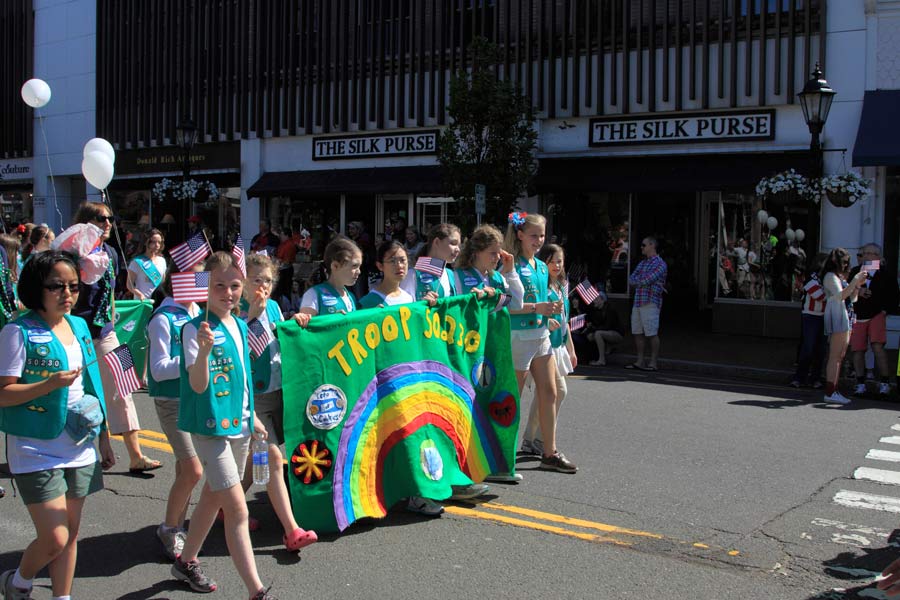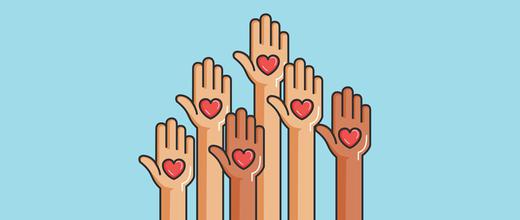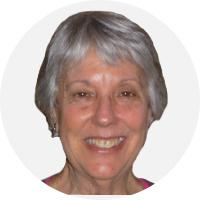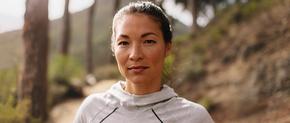The views expressed in our content reflect individual perspectives and do not represent the authoritative views of the Baha'i Faith.
“I will try to do my duty to God and my country.” Those words were part of the Girl Scout pledge that I recited countless times during my many years in scouting.
I was reminded of them earlier today when I happened to see my old badge sash among other memorabilia. When I look at the badges now, the memories blur, though each was distinct as well as significant back when I received it.

At the time, duty as a general principle was embedded in the scouting program. In retrospect, I realize that we were being trained to grow up as responsible citizens. That is still a worthy goal, considering that I live in a part of the world where we are free to participate through social activism, to vote, and to use our intellect to evaluate issues and people for ourselves.
Comparing my scouting days to modern times, though, I now hear less about duty and more about rights and responsibilities. Those two words describe the reciprocal relationship between what my country owes me and what I owe it.
What does my country owe me? The list would include items such as security at home and abroad; justice; an orderly society; a stable currency; freedom of expression; respect for the physical environment; a high standard of education and health; and representation in the United Nations and internationally.
The reverse — what I owe it — would include items such as financial contribution through taxation; staying engaged and informed; contributing to thought and discourse through a variety of media; participating in the electoral process by voting; and living in accord with generally accepted standards of behavior and civic values.
These lists, incomplete as they may be, highlight the rights and responsibilities of national citizenship. I also see parallels between national citizenship and other levels of organized life — including family, community, and even the world itself.
Family is the fundamental, most vital social structure for humans. It is where we begin to experience rights and responsibilities, however they may be defined and fulfilled within any specific family. The Baha’i International Community has repeatedly emphasized not only this idea, but also our collective role in protecting families:
“The protection of the family and the promotion of its well-being must become central to community processes. The family is the primary institution of society and the principal incubator of values, attitudes, beliefs and behaviors. When it is spiritually healthy, it contributes significantly to the development of happy and responsible citizens …
Harmony and cooperation in the family, as in the world, are maintained in the balance of rights and responsibilities. – Sustainable Communities in an Integrating World; Family in a World Community.“
In turn, the family reciprocates through its involvement in the community, which is the beginning of the concept of citizenship. It does this through being thoughtful members of the community and by supporting it in ways similar to the national level, as mentioned earlier.
Next is our relationship to the world itself, where we express our higher consciousness through action. When we recognize the oneness of humankind, our vision broadens. We can then connect our individual deeds to the betterment of society as well as to our own individual growth. As explained by Abdu’l-Baha:
“Man reacheth perfection through good deeds, voluntarily performed … voluntary sharing, the freely-chosen expending of one’s substance, leadeth to society’s comfort and peace.”
Putting this all together and taking a long-term, global perspective, I might summarize by saying that love for family will grow to a concern and respect for all people. Service to friends and neighbors will be service to humanity. Improvement in community life will stimulate improvement in living standards. We will ensure that access to systems — such as environmental, infrastructure, social, economic, legal, and political — is extended to all people, not just the wealthy and powerful. Human rights will be defended in all nations. War will be regarded as abhorrent as family violence. Abuse of the environment will be considered an assault on the planet.
Baha’u’llah is the first of God’s messengers to have lived at a time when our physical planet is recognized and understood in terms of its size, its physical characteristics, and its diverse peoples. He is the first in a time of actual connectivity among all peoples, with the advent of mass communications and easy travel. He is the first to have lived in a time with an earnest attempt toward social and political integration on a global scale, as seen within the United Nations. Putting this into historical perspective gives even greater import to his many teachings and insights about this notion of our world, including these powerful words: “The earth is but one country and mankind its citizens.“
After we become adults, there are no more scout badges to earn. Instead, we are motivated and inspired by envisioning a peaceful world united in friendship. We bring it closer by aligning our individual thoughts and actions. Our reward is knowing that someday people will recognize that we are world citizens belonging to one human family, even if we won’t have a badge on a sash to prove it.

















Comments
Sign in or create an account
Continue with Facebookor